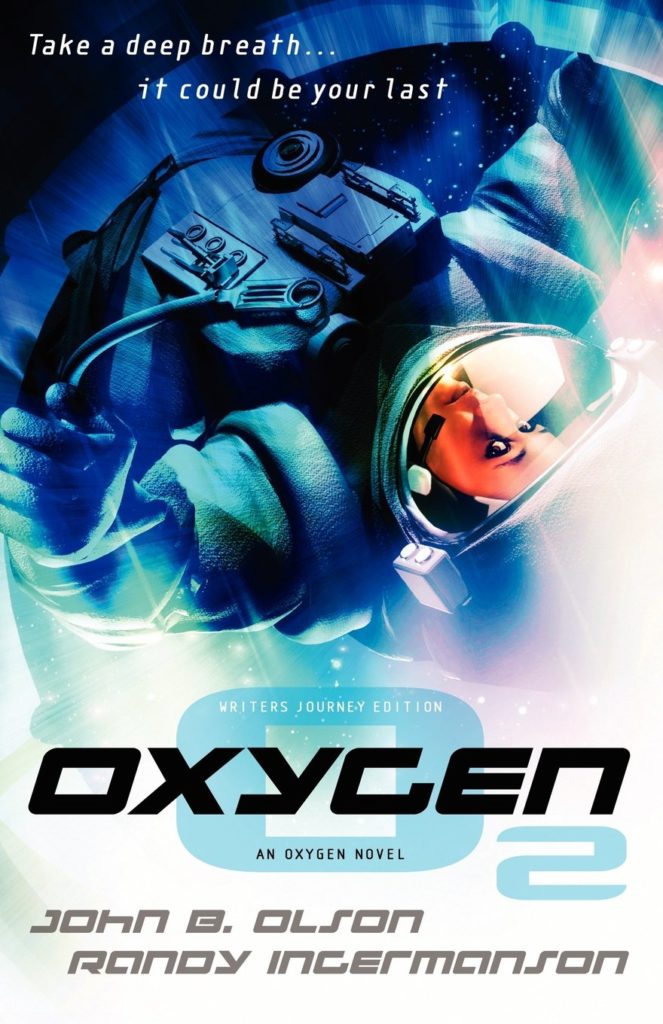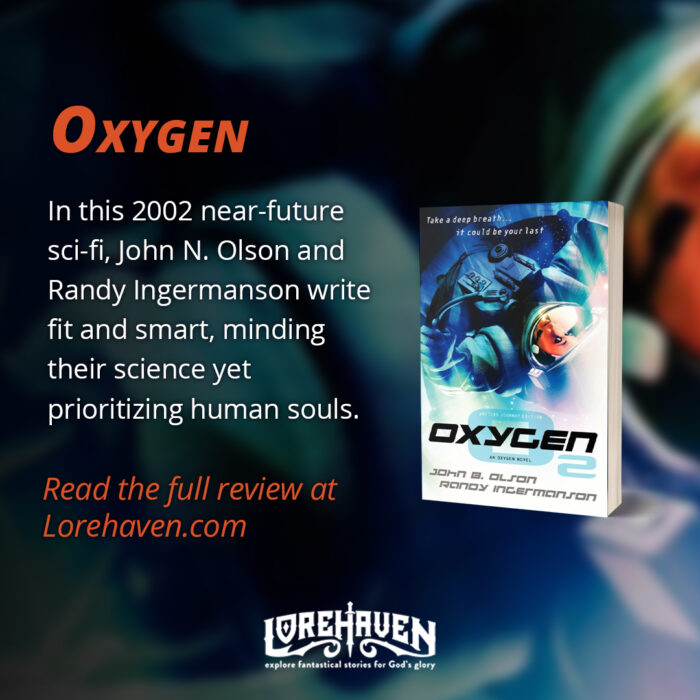In this 2001 near-future sci-fi, John N. Olson and Randy Ingermanson write fit and smart, minding their science yet prioritizing human souls.
Once every two years, Mars veers closer to Earth, and at about the same rate the red planet orbits back into the news. Usually this happens when NASA launches another probe, or SpaceX founder Elon Musk insists his latest rocket-related antics really will someday send humans to colonize other worlds.
For Christian speculative fans, however, a minor Martian invasion occurred in 2001 with the publication of Oxygen. This sci-fi thriller from John B. Olson and Randall Ingermanson followed the first human mission to Mars, starting in the year 2012.
In this now-alternate history, there was no Curiosity probe, no Olympic Games or presidential election hogging the headlines, and no grand promises for amazing NASA missions followed only by budget cuts. Instead, readers join the Ares program, in progress, to send a four-member team of actual people to Mars.
Our heroine is Valkerie Jansen, a microbial ecologist whom we meet while she’s camping near an erupting volcano, as one does. To this day, Valkerie could be one of the most likeable and naturally strong female characters in Christian-made fiction. Not only is she one of the few female scientist heroines about the place, smart and ambitious, but she also stands up for her faith, defending her people while conceding Christians’ flaws. This includes her own vulnerabilities, such as her fears about being thrown so quickly into NASA’s program, where her values may contrast sharply with the politics and secrets of the other astronauts.
Still, this is no “message fiction.” Valerie and her story uphold general themes of biblical faith: God does exist, and he will take care of people. Institutional churches mainly cameo in the form of culturally separatist Christians in the background, who seem to oppose the Mars mission. (Back in actual history, when too many people of all religions ignore space programs, NASA might plead for this kind of controversy.)
Our real villain, however, is unknown. Either way, after a wind-tossed launch and in-flight repairs, Ares 10 has a problem: an explosion that endangers the ship. Who’s the saboteur? Everyone aboard feels like a real, sympathetic person, so readers may not want any of them to be the villain. This uncertainty fuels the suspense of Oxygen. Still, it is the Ares mission’s success or failure, the crew’s competence, and the fear of unknowns, that provide the crew’s opposition en route to Mars.
A 2002 sequel, The Fifth Man, follows the crew as they (spoiler alert) continue their mission on Mars itself. This time they seem to be plagued, not by a saboteur, but by a stowaway—a haunting presence that might kill the mission, or any of them.
In both episodes, Olson and Ingermanson write fast, fit, and smart. They know their science and characters, though they err on the side of emphasizing characters.
Despite Oxygen’s then-futuristic starting year, the books don’t feel like sci-fi. That’s by design, the authors conclude. For humans to reach Mars, “technology is not an issue. Most of what we need exists right now, and the rest is well within our grasp” (page 366). Still, plenty of factors prevent this journey. Christians wanting to explore harder science fiction, set in our own world, might empathize. In theory, we have all we need to explore more Christian-made sci-fi realms for God’s glory. Yet until our crafts get faster and better, Oxygen (and The Fifth Man) will help satisfy this yearning.
Best for: Adult fans of “softened” harder science fiction who also don’t mind a little romance.
Discern: Allusions to creation versus evolution and debates over microscopic alien life, as well as references to in-flight flirtation and chaste romantic moments.






























Have you read Oxygen ? Share your own review.